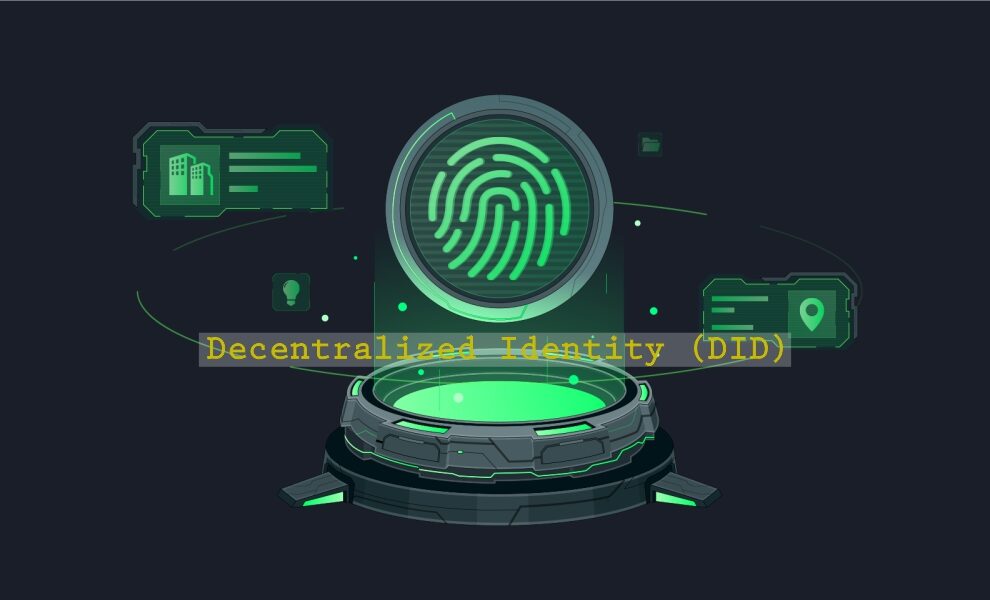No matter what, your personal data is a crucial asset. Thus, securing it should be your topmost priority. Every day, you unknowingly share information such as name, address, contact number, etc. over different platforms. But do you ever ask yourself, “Is my data safe?” Also, is granting random access to service providers or third parties, correct?
Think twice! To avoid these issues, users need to own and govern their digital identities from one source. However, the chances of data breach and cyberattacks increase when these identities are stored in a centralized system.
A decentralized system (DID) is a new approach to offering users more control over their data. Blockchain promotes secure management and storage of digital identities in a cohesive and ideal way.
Let’s read the article in detail to know more about the Decentralized identity (DID) approach with Blockchain that helps control and strengthen digital identity.
What is DID? (Decentralized Identity)?
Decentralized identity is an effective approach to digital identity management that lets you manage your username, digital IDs, etc., individually, without the involvement of any central or third-party authority. Previously, government organizations and third-party companies used to control your identity, and DIDs leave complete control in your hands.
Decentralized identity uses next-gen technologies such as blockchain, digital ID wallets, and more to allow secure, verifiable, and globally accessible digital identities. Here the credentials are issued only once and need to be stored by the user in a secure digital wallet.
How Decentralized Identity Work?
Decentralized identity is helpful. Without the need for centralized infrastructure, Decentralized identity (DID) allows users to securely manage and authenticate their digital identities. Here are its main components:
Key Components:
- Credentials: Personal information used to identify a person or an entity.
- Digital Wallets: Secure applications for storing and handling credentials.
- Issuers: Reliable parties issuing authenticated credentials.
- Verifiers: Parties that verify the authenticity of those credentials.
- Blockchain: A secure, decentralized platform to anchor and verify identities.
- DIDs: Self-sovereign, unique digital identifiers.
Importance of Decentralized Identity
Identity is the whole and sole key to how we interact and prove ourselves trustworthy in today’s digital world. However, hackers are every day finding out new ways to exploit individuals’ identity.
Centralized identity depends on personally identifiable information (PII), which might facilitate identity theft if it is lost or stolen in a data breach. On the other hand, Decentralized identities may be less susceptible to identity thefts. This is due to the distributed nature of blockchain.
Key Role of Blockchain in Decentralized Identity
Here is all about the blockchain’s role in decentralized identity:
- Decentralization: With this, you don’t need any central authority to manage or control your identity.
- Immutability: Blockchain offers a permanent record of transactions and information regarding identities.
- Interoperability: Blockchain can operate as a common infrastructure for communication between different identity systems.
- Self-Sovereign Identity (SSI): This idea, in which people oversee their own digital identities and can manage them independently of middlemen, is made possible by blockchain technology.
Sharing the Advantages of Decentralized Identity in Blockchain
Decentralized identity on blockchain comes with a range of benefits as given below:
Take Full Control of Your Data: Your data isn’t shared randomly, moreover only when required. DID allows this control.
High Security: With cryptography at its prime, blockchain reduces the risk of getting trapped in identity thefts and data breaches.
Budget-Friendly: This method streamlines procedures and lowers expenses for consumers and organizations by cutting out middlemen.
Wrapping it Up!
Decentralized identity (DID) is changing the scenarios of how digital identities are reversing their management and control from centralized system to user. As discussed, when this is powered by blockchain technology, it offers benefits that truly surpass and make your digital journey secure and thereby build trust.
Hope this blog has cleared your concept regarding DID. For more information on such topics, visit: HiTechNectar now.
Recommended Reads:
AI and Blockchain Integration in Modern Industries
Exploring Blockchain Technology Beyond Cryptocurrency
What is BaaS? How does Blockchain-as-a-service (BaaS) Work


